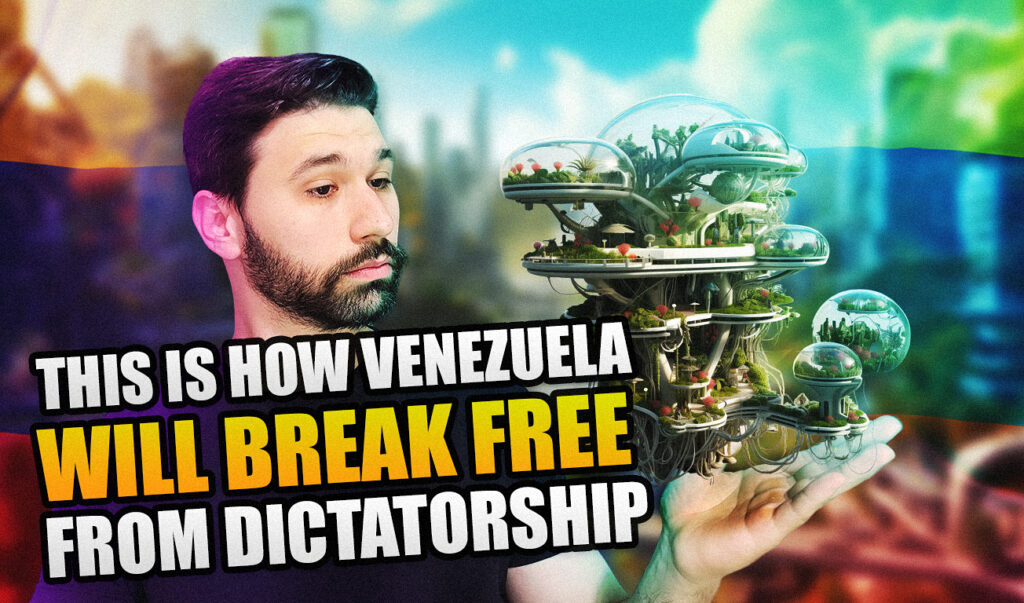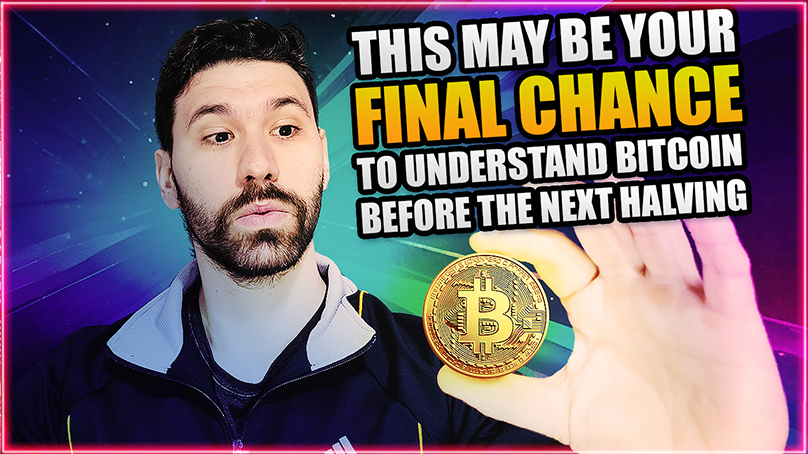Intro
Let’s dive into how to deal with totalitarian communist dictatorships and their sneaky ways of infiltrating, subverting, and taking over, using Venezuela as our case study.
First off, the solution for rogue or failed states like Venezuela, Belarus, Syria, Equatorial Guinea, Suriname, Cuba, and even North Korea isn’t direct military action by the U.S. or some charity coalition. The costs and risks (political and financial) are just way too high.
To give you some perspective, the Gulf War in 1991 cost the U.S. $61 billion1. The Iraq War in the next decade skyrocketed to $2 trillion2—that’s half the cost of the entire Second World War for the U.S. in today’s dollars. Two trillion dollars! No one is going to spend that kind of money out of charity.
So, occupying a country with millions of people, given the current costs, just isn’t viable for a regular army from a democratic country.
And let’s be real, action in Venezuela wouldn’t bring significant returns for the liberators, neither politically nor financially (especially with the abundance of new energy sources, zero marginal cost of gas in the U.S., and the oil price war). The solution is to align the interests of those who can liberate the country with those who can finance and execute that liberation.
Imagine platforms where you can sell assets and public rights. It’s like killing two birds with one stone: you raise funds by selling public rights and direct them to finance the legitimate government, making the overthrow of the criminal dictatorship possible.
Today’s technology allows for crazy new ways to gather resources and reward pseudo-anonymous actions—like we’ve seen with various crowdfunding efforts raising hundreds of millions or even billions3 of dollars.
Parallel governments can capitalize on their authority and recognition in governance systems that:
a) Sell public rights (properties, citizenship, tax exemptions, and concessions in respective countries);
b) Use these resources to keep their institutions running—financing their functions (civil service salaries, embassies, and other offices, etc.);
c) Finance the elimination or capture of criminals serving the communist dictatorship.
The U.S. offering rewards for information leading to the capture of Venezuelan regime leaders? There’s no guarantee of payment. Plus, there’s the risk of retaliation. If capturing entrenched dictators was easy or cheap, places like Cuba and North Korea wouldn’t still be around. The real solution is a betting system for the death of condemned criminals, where the executor gets paid pseudo-anonymously without discussing authorship or identity: if you bet on the right day of death (natural or not), you get paid in crypto, whether by luck or merit.
This reduces the risk of retaliation and proof of authorship, lowering transaction costs. In Natural Law, it’s broadly legal to publicly offer bounties on the heads of criminals engaged in illegal actions, especially in collusion with a murderous dictatorship. Killing a criminal caught in the act to prevent a crime is legitimate defense, as illustrated even in the Old Testament4.
Selling public rights by the legitimate government and assets where there is no longer legality or secure ownership doesn’t violate any rights—since under the current regime, there’s no exercise of property. If taxpayers bought the properties they claim ownership or possession of, they’d pay less than a fraction of the average land taxes in most countries.
If they’re paying territorial taxes to the dictatorship and didn’t use that value to acquire the property from the true government, then they are accomplices. Property arises from first use or secondary acquisition and is maintained by demarcation and defense. If they didn’t acquire it publicly on the site, they didn’t demarcate or defend it (from another demarcating or the dictatorship) and didn’t acquire it from a legitimate party.
In Positive Law, these actions would be legal, as authorized by the parallel government’s law. For those who prefer to act like a military covered by international rules, the parallel state can also sell “national guard” titles, including financing a foreign legion. Formally, the legitimate state’s courts could pre-judge the criminals, outsourcing their execution; or, alternatively, sell concessions of private practice magistracies, like the peace judges of the imperial period in some countries, so executors could judge criminals on the spot.
So, let’s cut through the BS and get to what really works. This isn’t about charity or high-risk military interventions. It’s about smart strategies, leveraging new tech, and aligning interests to bring down these regimes efficiently and effectively.
Cryptographic Cure in Superior Governance:
Let’s dive into the historical records of parallel governments in exile. France maintained a parallel state during the German occupation, and Kuwait did the same during the Iraqi occupation. There are dozens of successful examples, including the formation of states and competing governments in secession, like the founding fathers of the United States. Currently, parallel governments control parts of Libya and Yemen. In both cases, these governments raise resources and fight modern civil wars by selling public rights and taxation.
Selling citizenship (like in St. Kitts, Vanuatu, and Antigua), golden visas (like in Portugal, Spain, and El Salvador), perpetual tax exemptions (like in Zug), property rights, and state concessions aren’t new. But thanks to current technologies like cryptocurrencies and smart contracts, these can reach unprecedented scales with pseudo-anonymous transactions and decentralized governance and motivations. Citizenship acquisition through military service is current public policy in the U.S. and France and dates back to Ancient Rome. Participation in the transition regime, even as an investor, is a vital part of the war effort.
Paying for the capture or execution of criminals (dead or alive) has shown its value in history, like in the “wild west” with “wanted dead or alive” offers5. In our case, this would target criminals against humanity condemned for ongoing crimes, in legitimate defense of their victims.
American law also allows for life insurance policies on elected politicians where the policyholder is the beneficiary, structured similarly to death bets6. The world only faces the communist threat today because Soviet crimes were not judged, discredited, impoverished, and stigmatized like the Nazis were through the denazification process. Communist criminals against humanity were not hunted and judged like their Nazi allies who fell into the hands of the Mossad and Allied forces—thanks to reward offers and private efforts, like those by the Wiesenthal Foundation. Where this platform was applied, it would stimulate a “denazification of communists” with unprecedented efficiency.
Every company or person who acquires concessions from the Parallel State becomes a stakeholder (interested in victory as if they were a partner), and their assets only gain value if the dictatorship is eliminated.
If concessions are sold to companies, their editorial content and influence on government decisions are likely to support accelerating the elimination of the dictatorship.
Other virtuous cycles occur while there is an online platform selling land and public concessions and using the resources collected (in bitcoins or other stable cryptos) to place bounties on the heads of criminals: first, the more criminals die, the more bettors are confident that the payment promises are firm; second, the more properties and concessions are sold, the more resources and stakeholders are committed to destroying the dictatorship.
Since 2004, Jim Bell’s article predicted that markets for execution rewards through death bets would be inevitable. With exclusive bets on the day of death, it becomes an effective way to solve Olson’s “collective action problem”7. Betting on the death of a criminal becomes both a good deed and a speculative investment, with the potential for returns greater than many lotteries.
It’s pointless to place bounties on criminals’ heads without a secure anonymous payment mechanism for those who complete the mission. These values can be pseudo-anonymously paid in credits on the platform or directly returned to the cryptocurrency address that originated the bet on the day the mission is confirmed as completed.
Once the first millions are raised through the sale of public rights, a base value could be set on the head of any military, police, civil servant, or political criminal of the dictatorship. A hypothetical minimum value, say $1 per day for the death bet and $100 as a prize (4x the average Venezuelan salary and 3x the Cuban salary) could finance the development of a parallel economy to obtain these bounties.
To give you an idea of the potential values, if each exclusive day bet costs $1 more than the previous one and the first costs $1, considering just a 50-year window (18,262 days)—ignoring ideological participants with no intention of receiving anything and thus betting on days more than 50 years in the future—the prizes could exceed $166.7 million. This doesn’t include the potential passive appreciation if the bets and balances are in bitcoins. If only 10,000 days were bet on, it would be 10,000 /2 x 10,000 = 50M. If only 5,000 days were bet on, this scheme would yield 5,000 / 2 x 5,000 = 12.5M.
Deaths could be confirmed by videos produced by executors, with voice and facial recognition widely used in forensic examinations, or by DNA samples (like a femur or lower jaw or scalp, for example) sent to diplomatic representations. Just the publication of these materials could dismantle the dictatorship with an explosion in military desertions and civilian defections.
The U.S. government even put a $15 million bounty on Maduro’s capture8, to no avail.
Now imagine if just a fraction of that value could be cashed out in Bitcoin anonymously through a legitimate parallel state platform with exclusive day bets. If you bet on the correct day of a criminal’s death and it’s proven (through video with audio, DNA evidence, or even documents like death certificates or news reports), you get the reward. There are tons of solutions for the oracle problem, like relying on the platform’s institution recognition or the non-opposition of most other bettors once the prize is claimed.
But here’s the kicker: selling properties and concessions means nothing without a credible promise of victory. The solution is to voluntarily link a significant percentage of the sales to the bounties on the heads of condemned criminals. If a chunk of the transition regime’s revenue (say, 80%) is linked to bounties or strategic missions (like recovering or destroying assets held by the dictatorship), buyers of rights get the chance to recoup most of their investment by completing missions within their reach.
This mechanism allows buyers to direct part of their resources to specific objectives, making it easier to recover most of the BTCs invested.
Say a potential executor has access to a criminal (a public servant, judge, military officer, or councilor listed on the platform as condemned), but the bounty on their head is low. The executor can increase the mission’s value by buying parallel state assets and indicating that a percentage of the payment should fund the bounty on the criminal they can access, boosting their own future reward.
If the platform allows opening accounts with withdrawals and deposits in various BTC amounts through Liquid, Lightning, and other side chains and second-layer solutions, the level of anonymity (with less on-chain traceability) will skyrocket.
Even foreign mercenaries and publicly loyal regime soldiers would have incentives to eliminate criminals and get paid if the platform’s deposits and withdrawals were in cryptocurrencies (like bitcoins and stable dollars). This way, they could receive rewards without publicly claiming authorship.
Properties and concessions hold no value under a totalitarian dictatorship. Even selling them at 1/20,000th of their value compared to neighboring countries would be “fair” if defined by a free market mechanism. It’s also smart for the platform to double prices for every 0.5 to 1% of the assets sold, a strategy commonly used in airline ticket sales for perfect price discrimination and demand adjustment.
Initially, anti-communist militants would contribute to the platform like they would to a crowdfunding campaign.
Later, some would acquire passports for tax planning. Then, individuals and companies would invest speculatively. The more people invest, the closer the access to assets becomes, and the more valuable they get, turning into lower-risk investments.
A few weeks after issuing passports and starting the sale of (a) concessions, (b) citizenship, (c) perpetual personal tax exemptions, and (d) land at viable prices, there would be resources to finance a fully operational state—with intelligence services (to identify more criminals with bounties), diplomatic and consular representations, and its own public services (even if mainly online).
Once there’s a structure for any Venezuelan or foreigner to legally buy assets and recover 80% of their investment by eliminating criminals (paying and receiving pseudo-anonymously with Bitcoin or other cryptos), a parallel economy will develop in the country, dedicated to exterminating the condemned.
This creates a win-win situation in Game Theory: if bettors try to kill criminals and fail, the parallel state earns; if criminals bet on their own heads to get safe passage for a few days or weeks (to escape the country), the parallel state earns; if executors complete the objective, the parallel state pays a bounty and encourages dozens of investors and mercenaries to collaborate.
Ending with a Small Praxeological Exercise:
Would you buy a Venezuelan passport from Guaidó’s government, based in the U.S. (recognized by the EU and U.S.), for 0.01 BTC or $3500 with a 10-year personal tax exemption? Or would you prefer to pay double for a document with a perpetual exemption? How many people do you think would buy such a document if it arrived in the mail in 30 days, giving you full access to all political rights online?
Would you buy 1000 hectares of good land from Guaidó’s government for 0.01 BTC with a perpetual property tax exemption? How many people would buy it?
Would you buy the perpetual concession of a radio frequency, notary office, or civil or criminal magistracy in some region for 0.01 BTC? How many people do you think would buy?
Once there are millions in bounties, would there be a lack of people interested in hunting down criminals for BTC (or credits that could be used to shop on the platform)?
Conclusions:
Listen up. If you’re sitting around waiting for someone to free Venezuela out of sheer goodwill, you’re dreaming. If the people with stakes and rights in the country aren’t willing to invest or sell those rights, the regime will just keep going like we’ve seen in North Korea, Cuba, mainland China, and other communist dictatorships.
Here’s the deal: If an alternate state starts selling citizenships, passports, and personal tax exemptions for decades or forever, it could rake in billions. The booming market for golden visas and the sale of citizenships and perpetual tax exemptions proves this works.
Imagine this: The alternate state sells public concessions, lands, citizenships, and personal tax exemptions online. It would gather massive funds. Now, if a significant part of those funds is set aside to put a bounty on the heads of regime criminals, the returns would multiply. The more criminals that are taken out, the more valuable the assets in the country become, literally and metaphorically decapitating the regime.
Even if the alternate state doesn’t have the jurisdiction to make such rules, it can still hold online elections (just like Estonia has done since 2005). If these elections come after selling millions of passports to new citizens with voting rights, you’d end up with the most anti-communist, pro-market constitution ever written.
At first, crimes of opportunity would likely become the norm (think domestic poisonings or executions by neighbors or employees). As the bounties and the platform’s reputation grow, bounty hunters (mercenaries and other death professionals) would start participating systematically and competently.
With this platform live, hundreds of people living in Venezuela today could achieve financial independence in a matter of days simply by taking out a criminal they currently have access to but don’t eliminate because there’s no material gain for them.
When dozens of regime-linked individuals start dying each week, with their executions widely publicized on the internet, the regime will inevitably collapse upon reaching critical mass, paving the way for the country’s reconstruction. At the very least, it would fund concrete resistance actions and crime-fighting efforts, reducing the regime’s power—and the life expectancy of its cronies.
If the initiative doesn’t pan out, whether due to insufficient fundraising or a lack of people willing to kill or capture convicted criminals for money, it won’t result in the death of any innocents or any loss beyond voluntary investments to get the site online.
The legal framework for a transition regime likely won’t face resistance from legitimate authorities since this legislation would pay their salaries and free their country.
Almost nothing to lose and everything to gain. This is the viable model for destroying communist dictatorships and liberating countries in the 21st century: zero public spending, zero innocent deaths, and zero mandatory military recruitment. All resources and risks are private and voluntary, whether in Venezuela, Cuba, or any other totalitarian dictatorship.



